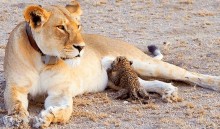Private guides and guided tours in Zambia
Private guides in Zambia
Private Guide in Lusaka - Wilson
(Member Since 2019) Languages: EnglishHi, and welcome to Zambia. My name is Wilson some call me Katongo, am 32 years old and I was born in Lusaka and have lived, went to school here, worked and played here. I have been guiding for close to 2 years now, before my guiding career I traveled to a lot of places around Zambia, I love nature and wild life.

Zambia
Language: English
Currency: Zambian kwacha
Calling Code: +260
CAPITAL CITY OF Zambia: Lusaka
LANGUAGE OF Zambia: English
CURRENCY OF Zambia: Zambian kwacha
COMMENTS ABOUT Zambia:
Zambia, officially the Republic of Zambia, is a landlocked country in southern Africa.
Cities : Lusaka (capital), Ndola, Kitwe, Chingola, Mufulira, Kabwe, Livingstone, Chipata, Lundazi, Mongu, Kaoma, Zyozyo
Best Places : Victoria Falls, Blue Lagoon National Park, Isangano National Park, Kafue National Park, Kasanka National Park, Lavushi Manda National Park, Liuwa Plains National Park, Lochinvar National Park, Lower Zambezi National Park, Luambe National Park, Mafinga Hills, Mosi-oa-Tunya National Park, Nsumbu National Park, North Luangwa National Park, Nyika National Park,South Luangwa National Park, Sioma Ngwezi National Park, West Lunga National Park
Calling Code : +260
Time zone : CAT (UTC+2)
Zambia is drained by two major river basins: the Zambezi River basin, in the south; and the Congo River basin, in the north. The part of Zambia drained by the Zambezi basin is about three-quarters of the country's total area. The part drained by the Congo basin is about a quarter of the area.
The official language is English, used to conduct official business and is the medium of instruction in schools. Commonly-spoken indigenous languages include the 7 major languages: Chibemba, Chinyanja, Lunda, Chitonga, Kaonde, Silozi and Luvale. These 7 languages are taught in schools and broadcast on national radio and television. The Ethnologue report on Zambia lists 42 languages and many more dialects spoken in Zambia. A Zambian languages website lists 78 languages. Some of the difference may be attributed to dialects in the Ethnologue list being counted as languages in the second list.
CLIMATE OF Zambia: tropical; modified by altitude; rainy season (October to April)
RELIGION OF Zambia: Christian (50%-75%), Muslim and Hindu (24%-49%), indigenous beliefs (1%)
POPULATION OF Zambia: 10,462,436 - estimates for this country explicitly take into account the effects of excess mortality due to AIDS; this can result in lower life expectancy, higher infant mortality and death rates, lower population and growth rates, and changes in the distribution of population by age and sex than would otherwise be expected (July 2004 est.) African 98.7%, European 1.1%, other 0.2%>>
HISTORY OF Zambia: The territory of Northern Rhodesia was administered by the South Africa Company from 1891 until it was taken over by the UK in 1923. During the 1920s and 1930s, advances in mining spurred development and immigration. The name was changed to Zambia upon independence in 1964. In the 1980s and 1990s, declining copper prices and a prolonged drought hurt the economy. Elections in 1991 brought an end to one-party rule, but the subsequent vote in 1996 saw blatant harassment of opposition parties. The election in 2001 was marked by administrative problems with three parties filing a legal petition challenging the election of ruling party candidate Levy MWANAWASA. The new president launched a far-reaching anti-corruption campaign in 2002, which resulted in the prosecution of former President Frederick CHILUBA and many of his supporters in late 2003. Opposition parties currently hold a majority of seats in the National Assembly.
CULTURE OF Zambia: Zambia's present-day culture exhibits a blend of historical and cultural features from the past as well as the present. Traditional African practices and understandings continue to influence many aspects of Zambian culture, mainly in how people act towards elders, marriage guidance and ceremonies. For example, at a funeral, women show support to the grieving family by wailing uncontrollably upon arrival at the funeral gathering — usually at the deceased's house. However, after the ceremony, they can be found joking and greeting long forgotten family members.
ECONOMY OVERVIEW OF Zambia: Despite progress in privatization and budgetary reform, Zambia's economic growth remains below the 5% to 7% necessary to reduce poverty significantly. Privatization of government-owned copper mines relieved the government from covering mammoth losses generated by the industry and greatly improved the chances for copper mining to return to profitability and spur economic growth. Copper output increased in 2003 and is expected to increase again in 2004, due to higher copper prices. The maize harvest doubled in 2003, helping boost GDP by 4.0%. Cooperation continues with international bodies on programs to reduce poverty, including a new lending arrangement with the IMF expected in the second quarter, 2004. A tighter monetary policy will help cut inflation, but Zambia still has a serious problem with fiscal discipline.



 French
French Spanish
Spanish Russian
Russian





